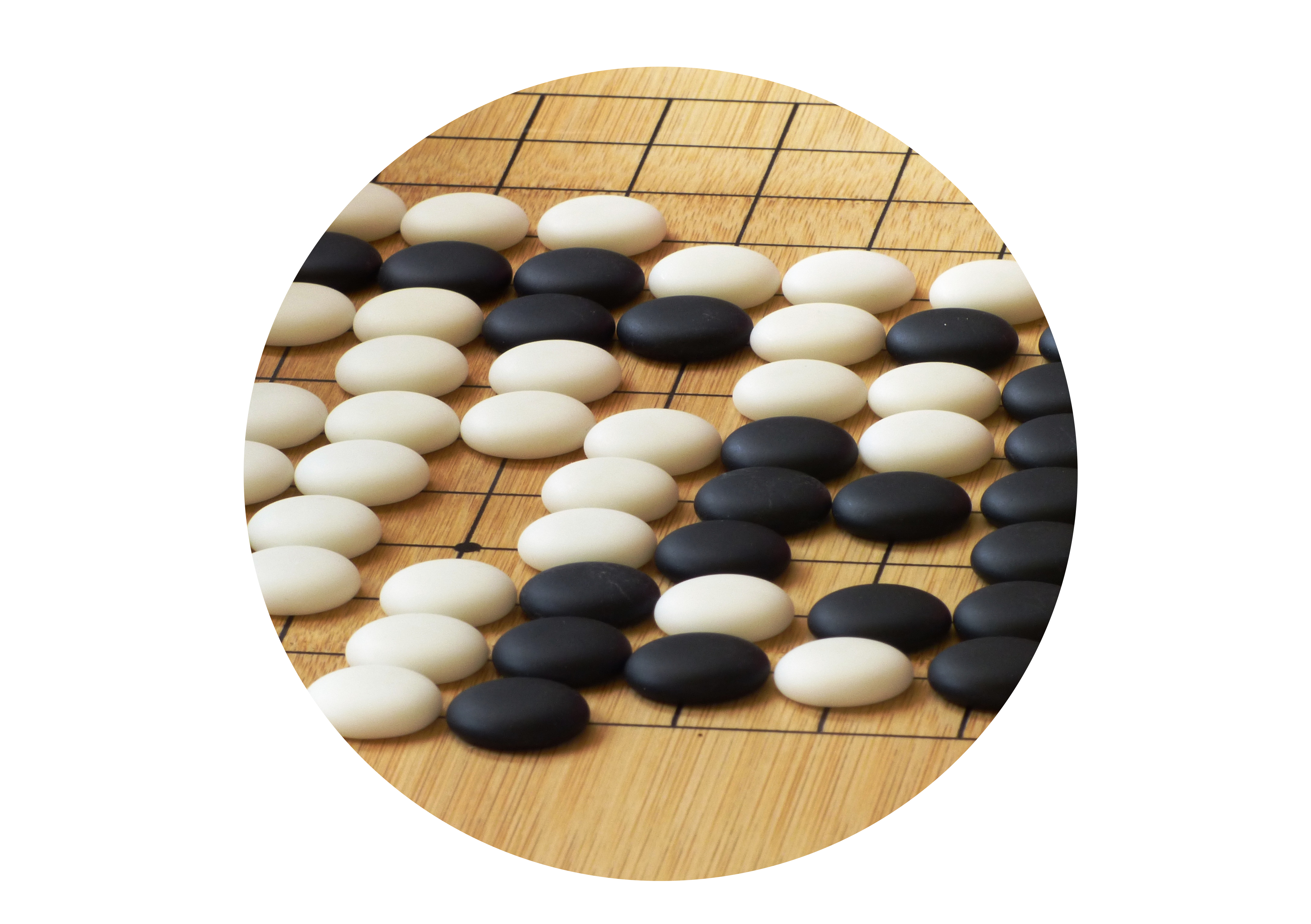
CAROL
SALVATO
The importance of digital games in the advancement of artificial intelligence
Artificial intelligence and digital games are two technologies that add fun and innovation to all fields in which they are involved. That is why this new area of research that aims to develop intelligent systems applied to the gaming environment just for experimentation or as part of the product, has been growing so much and becoming important for both parties.

Artificial intelligence and digital games are two technologies that add fun and innovation to all fields in which they are involved. That is why this new area of research that aims to develop intelligent systems applied to the gaming environment just for experimentation or as part of the product, has been growing so much and becoming important for both parties.
Video summary related to this subject:
Leia esse artigo em português aqui .
1. Artificial intelligence
Artificial intelligence is currently present in all media, including in our lives. Whether on Smartphones, on the assembly lines of large companies or on Cars, it is already possible to find intelligent codes capable of controlling and executing specific functions, in a similar or even better way than a human being. Among many existing techniques that allow the study and advancement of the highly acclaimed general artificial intelligence. The use of expert systems capable of fulfilling specific tasks is still the most common.
When talking about technology taking jobs, when analyzing the jobs most likely to be automated, there are some standard features. For example, mechanical work, very repetitive, manual work or that require a lot of physical effort are part of the main characteristics. Therefore, it is clear how the greatest efforts today are still in the expert systems.

2. AI in Digital Games
The digital games market has boomed to become one of the world’s largest entertainment markets. Artificial intelligence is an important ally in the development of this sector. Intelligent systems help making games more fun, more challenging and increasing immersion. Either in NPCs within the universe of an RPG where the player takes missions and sells his items or in an enemy that the player must defeat.Intelligent systems are excellent controllers of digital agents and depending on the algorithm can generate adaptive behaviors that increase immersion and difficulty for the player.

3. Games and Artificial Intelligence
This assistance is a two-way street, as research in the field of artificial intelligence can also benefit and evolve with the help of games. So much so that in the history of the evolution of artificial intelligence it is possible to find several moments in which games were involved. As in 1994 when IBM’s Deep Blue computer defeated hitherto current chess champion Garry Kasparov [8]. Or more recently, in 2016 when DeepMind’s AlphaGo won the then Go champion Lee Sedol, with Go being a highly complex game [7]. These were notable moments for the advancement of artificial intelligence, as both games until then were in the human domain. However, even so, the systems used were specialist systems, developed only to play chess and only to play go.
4. Digital Games and Artificial Intelligence
And it doesn’t stop there, more recently OpenAI beat a professional Dota 2 player with its AI Open Five [3]. And DeepMind with its AlphaStar system not only beat professional StarCraft 2 players but also reached the Grandmaster level in the game, the highest level a player can have [1, 2]. The AlphaStar system is still present in the game, and players can play against it in an ordinary game, without even realizing that they are playing against an AI.
A little earlier, in 2013 DeepMind published a work in which an algorithm called deep reinforcement learning was developed. Being able to play several different Atari games, this was considered by many to be the first step towards general AI [4].
All these feats involving digital games are important milestones in the advancement of AI, as games like Dota 2 and StarCraft 2 have a complex and dynamic environment, in addition to the ability to reason quickly, it also takes a lot of creativity to reach the highest levels of these games. In addition, they are games with a large audience and competitive events, which attract many players with unique skills.

5. Digital game environments for AI application
The interest in research in this environment and its benefits led to the development of tools for these applications, such as Project Malmo, an API for the application of intelligent systems in the Minecraft Game environment [5]. This API is excellent because it facilitates the work of the developer/researcher by facilitating the application of the system in several programming languages. The Minecraft game environment is highly dynamic and configurable, making it possible to build the most varied types of challenges and experiments.
The Unity game engine, widely used by game companies and developers, entered this medium and developed Machine Learning tools to assist researchers and developers [6]. Unity, even with the goal of game development, was already widely used to create environments for experiments. This is because it is a very powerful and simple tool to learn. The only negative point for some is that the tool only uses the C # programming language.
6. IA vs. IA competitions
The enthusiasm in this area of research and development has grown so much that competitions between intelligent systems playing digital games like the ones already mentioned StarCraft and Minecraft have emerged [9, 10, 11]. In these competitions, the AI play against each other, as in e-sports competitions, very popular today. In addition to being fun, these events help in the development of the area, disseminating and bringing more and more enthusiasts to the research field.

7. Next
The applications for these researches go far beyond digital games and their huge market. Since the games can function as a first environment, more controllable, economical, and with a quick application of experiments. This is one of the reasons why this field has developed so much and attracted so many researchers. There is still much to create, many techniques and theories and algorithms to be developed and tested. And in the middle of it all, many discoveries to be made.
What if using techniques and methods based on biology and theories of psychology to develop algorithms for intelligent systems, we were able to create a complex system capable of learning to play several different games?
To the next time!
Héllen Caroline Salvato
Salvato H. C. (2020) “The Importance of Digital Games in the Advancement of Artificial Intelligence”, Artificial Life Game Code. Available at <https://carolsalvato.com/index.php/2021/03/09/the-importance-of-digital-games-in-the-advancement-of-artificial-intelligence/>.
References:
[1] AlphaStar: https://deepmind.com/blog/article/alphastar-mastering-real-time-strategy-game-starcraft-ii
[2] AlphaStar: https://deepmind.com/blog/article/AlphaStar-Grandmaster-level-in-StarCraft-II-using-multi-agent-reinforcement-learning
[3] Open Five: https://openai.com/projects/five/
[4] Playing Atari with Deep Reinforcement Learning: https://arxiv.org/pdf/1312.5602v1.pdf
[5] A plataforma de Malmo para experiências de inteligência artificial: https://www.ijcai.org/Proceedings/16/Papers/643.pdf.
[6] Unidade: uma plataforma geral para agentes inteligentes: https://arxiv.org/pdf/1809.02627.pdf
[7] AlphaGo: https://deepmind.com/research/case-studies/alphago-the-story-so-far
[8] Deep Blue: https://www.researchgate.net/publication/222544943_Deep_blue
[9] CrowdAI (Marlo): https://www.crowdai.org/challenges/marlo-2018.
[10] Torneio SSCAI: https://sscaitournament.com/
[11] Destino: https://www.crowdai.org/challenges/visual-doom-ai-competition-2018-singleplayer-track-1.
Images CC0 por Pixabay





